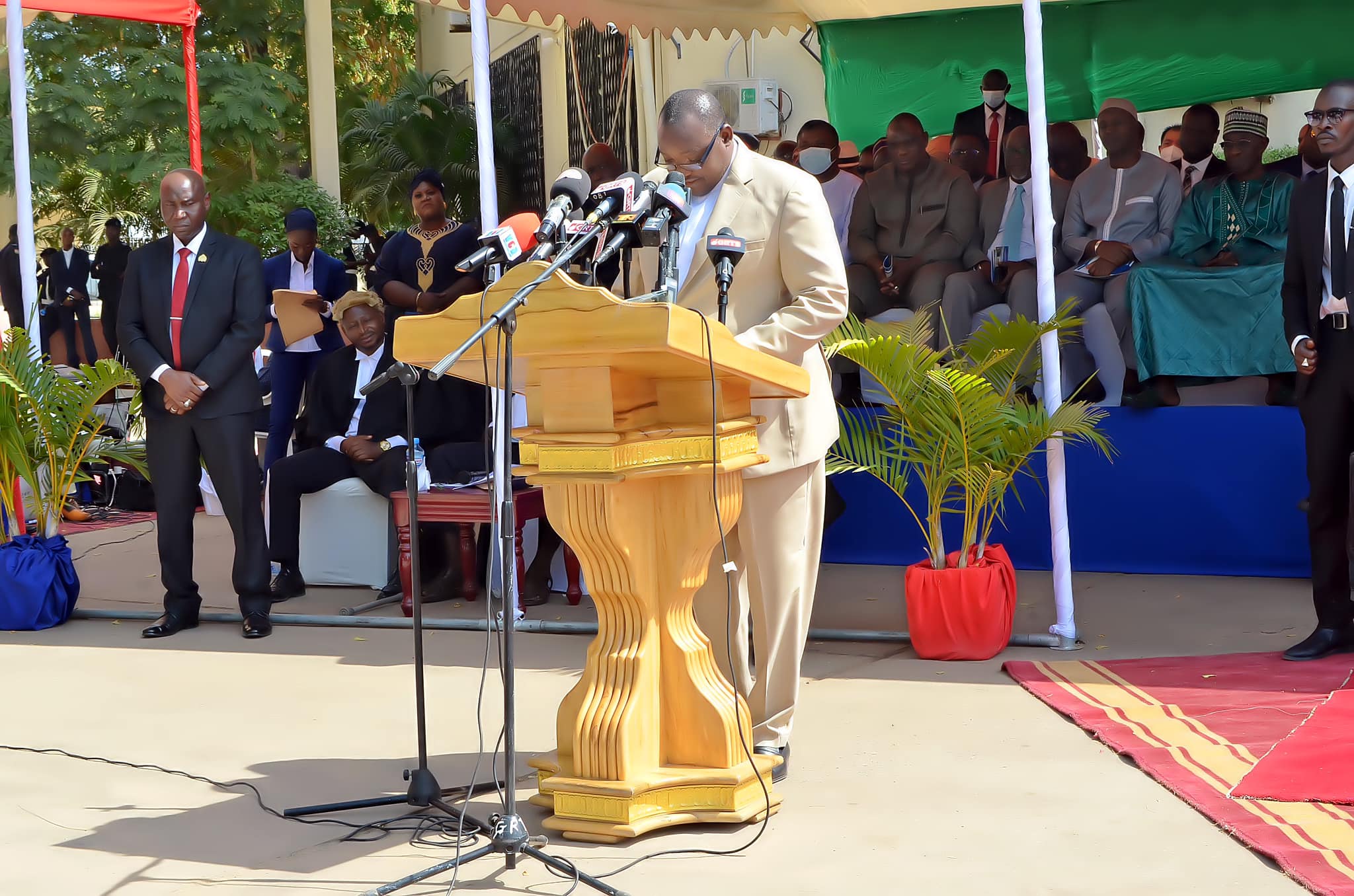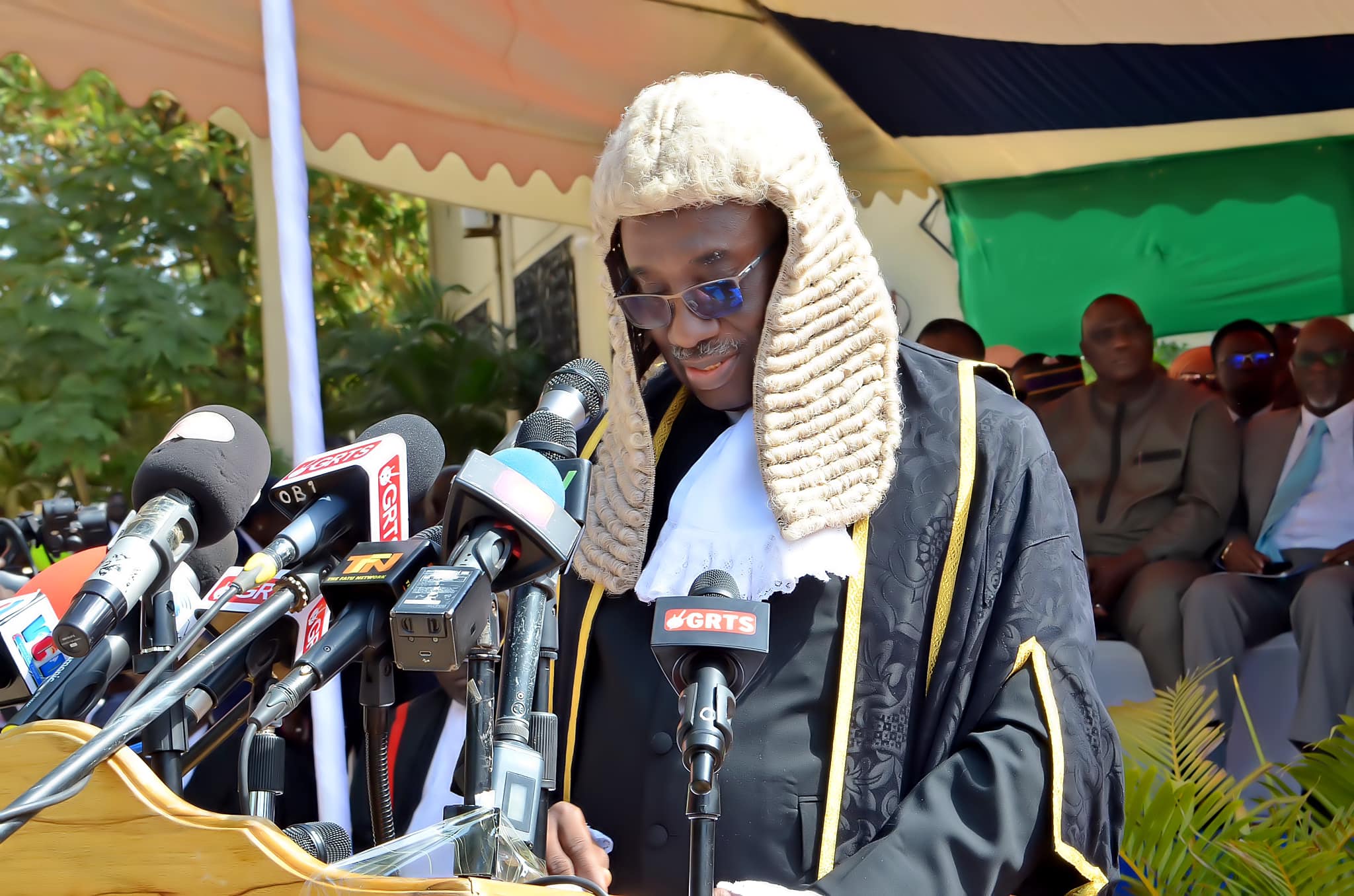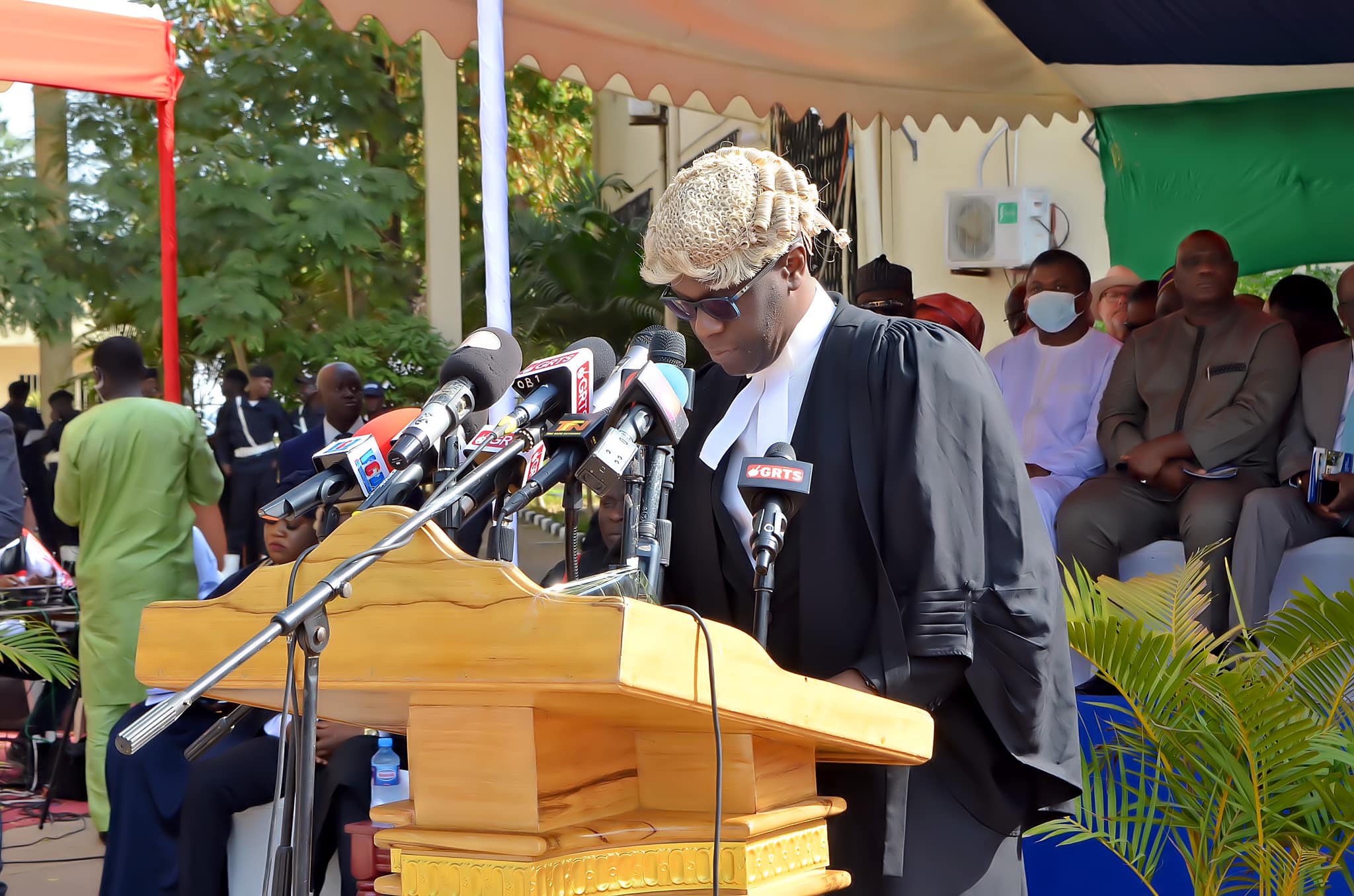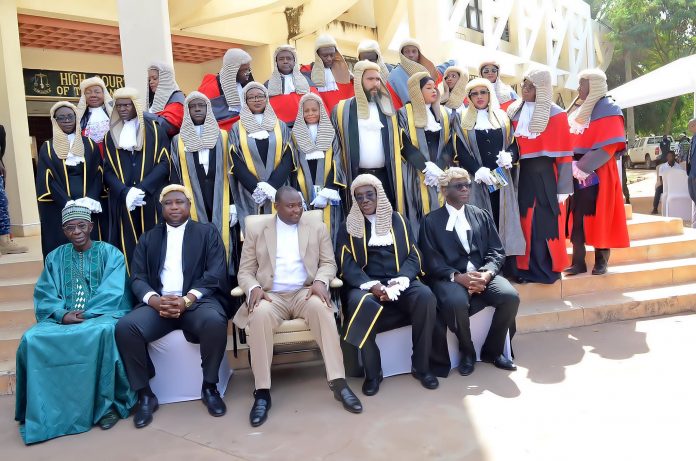By Fatou Dahaba
President Adama Barrow on Sunday presided over the official opening of the legal year for 2023 at a ceremony held at the Supreme Court complex on Independence drive in Banjul.
The yearly event is organized by the Gambia Judiciary to take stock of the performance of the machinery of justice and reflect on the challenges in ensuring a quality justice system for the Gambia.
In his opening remarks, President Adama Barrow expressed delight and elation in presiding over the event, saying the occasion allows his country to review its performance within the legal sector and ascertain possible solutions to address some of the challenges that weaken its strength.
 “My government took giant strides to uphold good governance, democracy, and the rule of law, especially about the separation of powers between the three organs of government. In doing so, we have accomplished a lot towards establishing justice and providing legal services through the Ministry of Justice,” Barrow said.
“My government took giant strides to uphold good governance, democracy, and the rule of law, especially about the separation of powers between the three organs of government. In doing so, we have accomplished a lot towards establishing justice and providing legal services through the Ministry of Justice,” Barrow said.
President Barrow also renewed his government’s commitment to guaranteeing respect for human rights as a tool for implementing the TRRC report, which his government considers a significant part of the national transitional justice process.
In his statement, the Chief Justice of the Gambia, Hassan B. Jallow, revealed that in 2022, a total number of 11,568 new cases were filed across all the courts — from the Supreme Court to the Subordinate Courts — the majority of which are civil matters, a significant portion of which are land disputes from the West Coast Region.

Justice Jallow also notes and shares the public concern over the delays and the demand for the speedy disposal of cases.
“What is unreasonable is, of course, relative and dependent on various factors and circumstances, including the nature of the workload and the resources –human and material and the facilities available to the courts,” Jallow said.
The Attorney General and Minister of Justice, Dawda Jallow, said his Ministry intends to decentralize the legal services by designating some of the State Counsel to different courts created in other regions by the Judiciary of The Gambia.
“This will help provide a speedy and accessible justice delivery service that is responsive to the needs of the general public,” the Justice Minister added.
The President of the Gambia Bar Association, Salieu Taal, stressed the need for a new constitution in the realization of the Gambia that has been decided for in 2017, adding that it is disheartening to maintain the practice of draconian laws of the dictatorial era of Jammeh.

“The same criminal code, public order act, elections decree, and draconian practice directions from the Jammeh era. The legal order of the previous dictatorial regime is still intact, yet to be supplanted after 6 years of our transition from dictatorship in 2017. The Gambia we decided is yet to be realized,” Taal said.
This year’s event will be followed by several other activities during the week, amongst them the call to the Gambia Bar of 72 students, 34 of whom are Gambians who have successfully completed their vocational training at the Gambia Law School and are now poised for pupillage.






